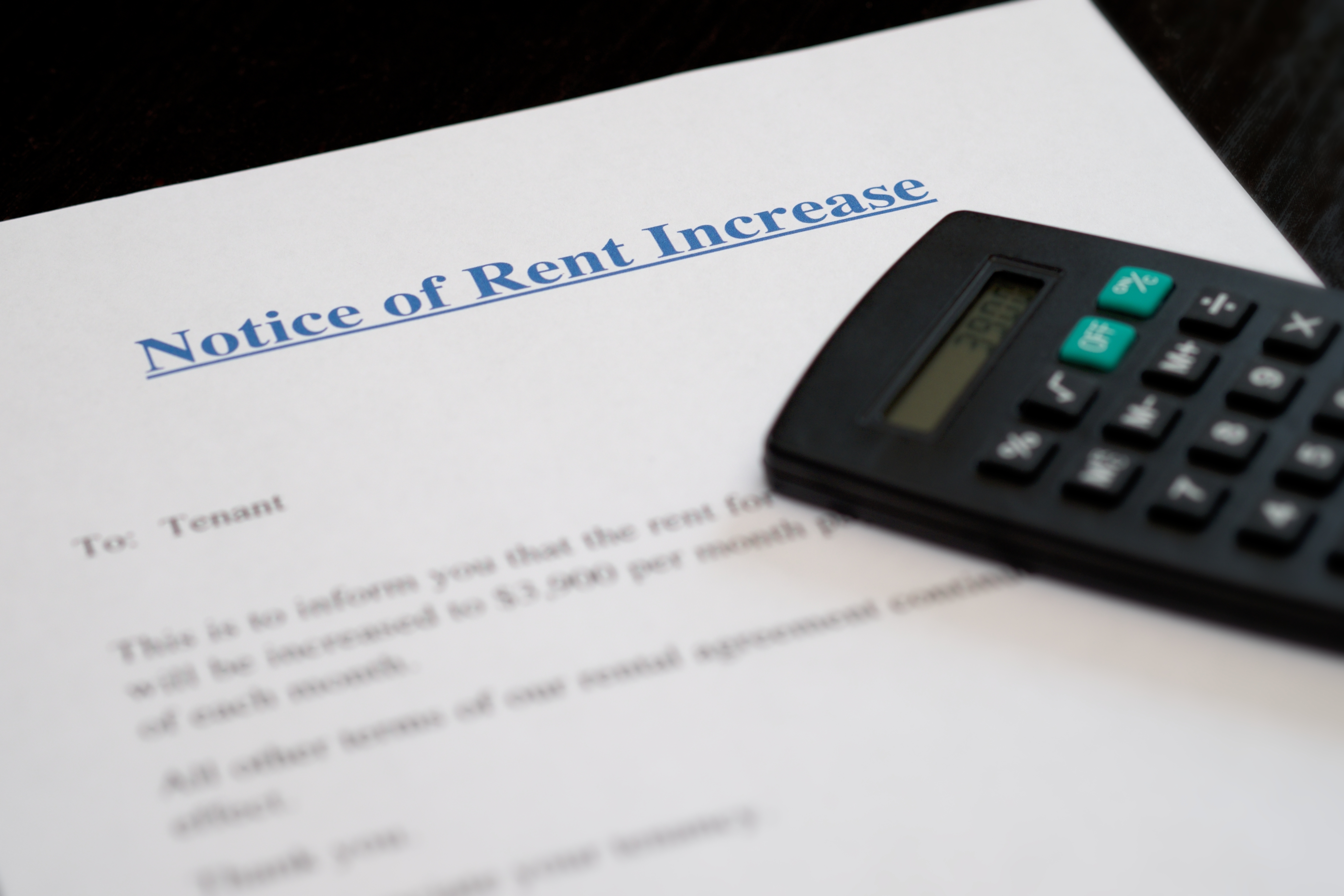
Rent Increases: Your Top 5 Questions Answered
When the real estate market is tight and rent prices are through the roof, the last thing a renter wants to get is a rent increase notice. But it happens — and depending on where you live and the timing of the rent increase, it may be completely within a landlord or property manager’s rights to raise your rent throughout your tenancy.
In this article, we’ll answer the 5 rent increase questions on every renter's mind.
1. Can my landlord raise rent prices each year?
Unfortunately, unless you live in a municipality with rent control, the answer is generally — ugh — yes. While no renter wants to see the amount of rent that they pay increase, the good news is that your landlord can’t just raise your rent any time they like. They must wait until your lease ends before putting a rent increase into effect. If your area does have state laws around rent stabilization, then there may be a maximum amount that your rent can be increased each year.
If your rent increases and you aren’t sure you will be able to afford the new price, consider looking for another apartment. If you are unable to keep up with the new rent, you may end up paying even more in late fees — or worse, getting an eviction notice — for the non-payment of rent.
2. How much written notice does my landlord need to give me for a rent increase?
In most states, a notice of a rent increase must be provided in writing, and rent increases cannot start until your lease is up (unless otherwise noted in the rental agreement).
In the case of a one-year lease, this means that renters can expect their monthly rent to remain the same for the duration of the lease. However, you should not be surprised to receive written notice of a new rent hike as the time approaches to sign a new lease agreement, usually with a 30 to 60-day notice.
When it comes to a month-to-month lease, the only advance notice a landlord or property manager is required to give a tenant is a 30-day notice. The fact that a landlord can raise rent over a month-to-month period is one of the downsides of being a month-to-month tenant.
3. When can’t my landlord raise my rent?
In municipalities protected by rent control laws, landlords are subject to restrictions on how much they can raise rent on a rental unit (if at all). It's important to note that renter laws vary from state to state, and even city to city. Look up rent stabilization and tenant protection acts in your municipality if you are unsure whether or not your landlord can raise your rent.
However, regardless of your location, tenant rights include protection from discrimination. It is illegal for your rent to be increased as a form of discrimination or retaliation. If you feel that your rent increase violates your tenant rights outlined by the U.S. Department of Housing and Urban Development, it’s best to consult a real estate lawyer for legal advice.
4. How much can my landlord raise my rent?
In most areas without rent control ordinances, when your lease is up, your landlord can increase your rent as much as they like. However, landlords know that if they raise rent to a level that significantly exceeds the market value of an apartment, they won’t only lose their current renter, but they’ll have a hard time attracting a new tenant.
In a stable real estate market, renters can typically count on annual increased rent somewhere in the ballpark of 2% to 5%. But when market conditions vary, like, say during the coronavirus pandemic, that’s when renters can experience big rent price fluctuations from one lease term to the next.
If your written lease renewal includes a rent increase, one thing to keep in mind is that a rent increase can impact the amount you owe for your security deposit. In other words, if your monthly rent goes up, your security deposit goes up with it.
5. Can you negotiate rent?
While many renters don’t realize they can negotiate rent, it is possible. But that doesn’t mean it will be easy. The truth is that in a competitive real estate market, negotiating rent can be difficult. That being said, it’s always worth a try.
Examples of how to convince your landlord not to increase your rent include making your case politely, using market comps to support your reasoning, offering to pay more upfront, committing to a longer lease, and more. In fact, we’ve written an article full of tips and advice on How to Negotiate Rent. If your landlord won’t budge on rent, maybe you can come to an agreement where they make repairs or upgrade and improve your apartment in some way.
The Bottom Line
In rental markets where rent control laws don’t prevent landlords and property managers from increasing your rent, you're likely to find notice of a rent hike in your mailbox as your lease nears its end. The only question is what to do about it. First things first, negotiate. If that fails, you have a choice to make: pay up or vacate the rental property. As you consider whether you can afford the rent increase, be sure to take into account the expense of moving or whether adding a roommate to your lease could help cover the cost of the higher monthly rent.
Top cities
Atlanta Apartments
1,999 apartments starting at $600/month
Austin Apartments
4,949 apartments starting at $600/month
Baltimore Apartments
1,472 apartments starting at $500/month
Boston Apartments
3,499 apartments starting at $940/month
Charlotte Apartments
2,903 apartments starting at $450/month
Chicago Apartments
4,012 apartments starting at $450/month
Dallas Apartments
5,609 apartments starting at $604/month
Fort Worth Apartments
2,193 apartments starting at $600/month
Houston Apartments
4,504 apartments starting at $590/month
Las Vegas Apartments
1,081 apartments starting at $704/month
Los Angeles Apartments
11,535 apartments starting at $625/month
Miami Apartments
544 apartments starting at $1,000/month
Milwaukee Apartments
928 apartments starting at $465/month
New York Apartments
4,118 apartments starting at $488/month
Oakland Apartments
608 apartments starting at $885/month
Orlando Apartments
842 apartments starting at $825/month
Philadelphia Apartments
3,657 apartments starting at $550/month
Phoenix Apartments
4,153 apartments starting at $599/month
Pittsburgh Apartments
1,223 apartments starting at $600/month
Portland Apartments
2,519 apartments starting at $599/month
Raleigh Apartments
1,367 apartments starting at $750/month
San Antonio Apartments
3,925 apartments starting at $525/month
San Diego Apartments
2,960 apartments starting at $650/month
San Francisco Apartments
436 apartments starting at $675/month
San Jose Apartments
405 apartments starting at $1,300/month
Seattle Apartments
3,623 apartments starting at $450/month
Tampa Apartments
1,078 apartments starting at $800/month
Washington DC Apartments
2,878 apartments starting at $745/month


